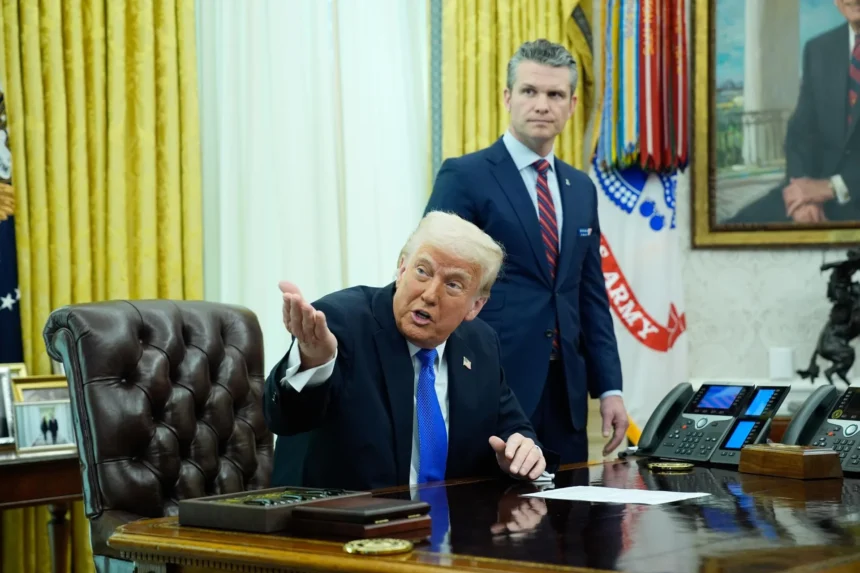A Shocking Security Breach
In a stunning intelligence failure, senior members of Donald Trump’s cabinet inadvertently sent secret military plans regarding recent U.S. attacks on Yemen’s Houthi forces to a journalist.
The blunder occurred when high-ranking officials, including Vice President JD Vance, Defense Secretary Pete Hegseth, Secretary of State Marco Rubio, and Director of National Intelligence Tulsi Gabbard, discussed classified military strategies on Signal, a commercial messaging app not approved for government use.

In a disastrous mistake, Jeffrey Goldberg, editor of The Atlantic magazine, was mistakenly added to the Signal group chat named “Houthi PC Small Group,” allowing him to access and report on classified discussions.
Outrage and Political Fallout
The leak sparked widespread outrage and calls for an investigation into how such a breach occurred. Senate Minority Leader Chuck Schumer condemned it as “one of the most stunning breaches of military intelligence in a very, very long time.”
House Armed Services Committee member Rep. Pat Ryan, a military veteran, described the fiasco as “FUBAR” (Fed Up Beyond All Recognition)* and called for an immediate congressional hearing.
White House Response and Denials
The White House attempted to downplay the incident. National Security Council spokesperson Brian Hughes admitted the leak was authentic but insisted that “no threats to troops or national security” resulted from the error.
President Trump, when asked about the matter, distanced himself, stating, “I don’t know anything about it. I’m not a big fan of The Atlantic.”
Meanwhile, Defense Secretary Pete Hegseth denied that war plans were discussed, calling the reports “hoaxes.” However, Goldberg responded on CNN, stating, “No, that’s a lie. He was texting war plans.”
What Was in the Leaked Messages?
The Signal chat revealed top officials discussing the timing and justification for military action in Yemen. Key exchanges included:
• JD Vance: Expressed reluctance to attack, saying, “I just hate bailing Europe out again.”
• Pete Hegseth: Agreed, replying, “I fully share your loathing of European freeloading. It’s PATHETIC.”
• National Security Adviser Mike Waltz: Reported that the attack was successful, celebrating with fist, fire, and U.S. flag emojis.
• Secretary of State Marco Rubio: Congratulated military officials, writing, “Good job Pete and your team!!”
Why This Breach Matters
1. Use of Unsecured Messaging Apps – Signal is encrypted but not government-approved for classified discussions, increasing risks of cyber threats.
2. Potential Compromise of Military Operations – The exposure of real-time U.S. attack plans could have jeopardized troops and intelligence assets.
3. Global Diplomatic Fallout – The remarks about European allies being “freeloaders” could damage U.S. relations abroad.
What Happens Next?
Security and intelligence experts describe this as an “unprecedented operational security failure.” Pressure is mounting for a full-scale investigation into the White House’s handling of classified information.
With Congressional hearings imminent, this could lead to severe consequences for those involved—and further scrutiny of Trump’s national security policies.









